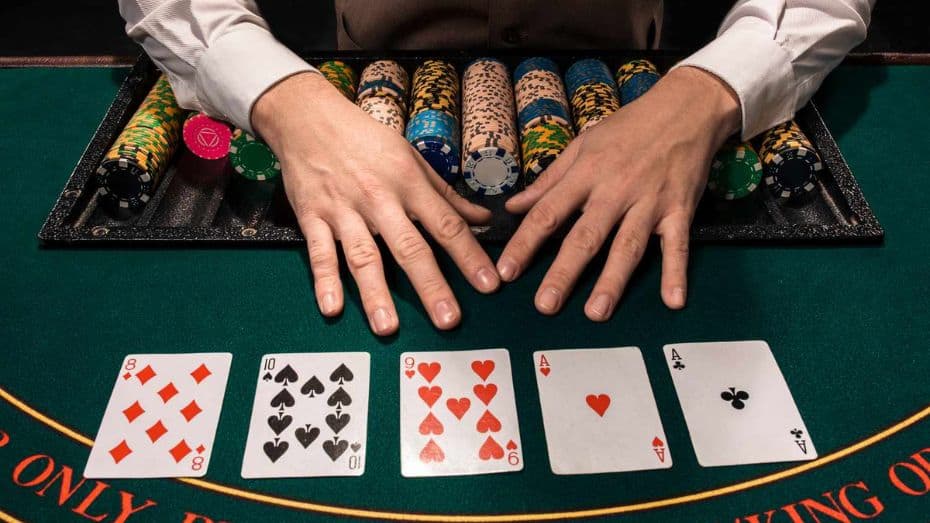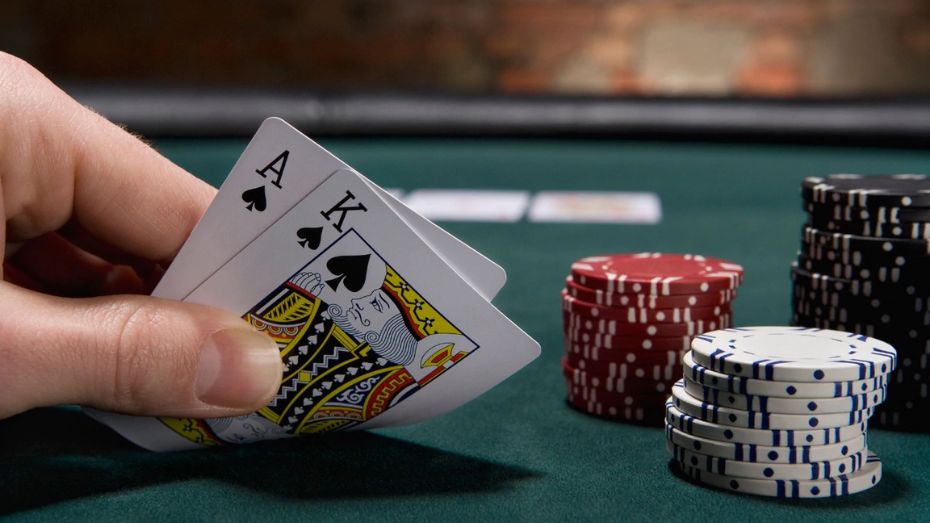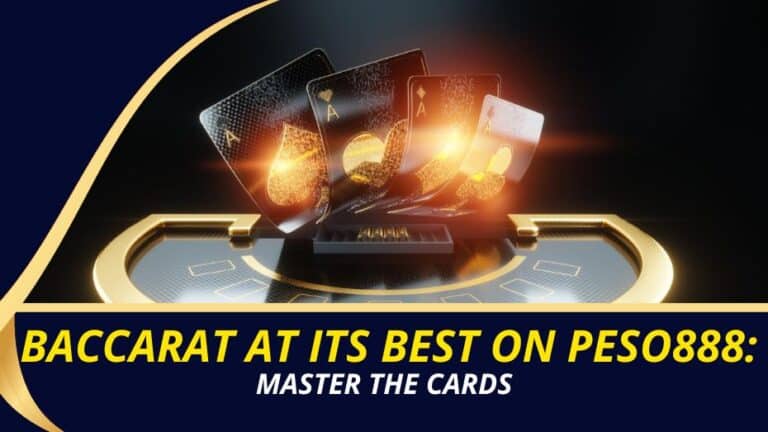Peso888’s Poker Tables: Shuffle, Deal and Win

Welcome to Peso888, where the world of poker unfolds with unmatched excitement and endless possibilities. Poker, a game that seamlessly combines skill, strategy, and a dash of luck, takes center stage in our vibrant gaming arena. Whether you’re a seasoned pro or a novice eager to learn the ropes, our poker tables offer an immersive experience designed to cater to all levels of expertise. Join our Poker tables to enjoy an unparalleled gaming experience on Peso888.
About Poker
Poker is a popular card game that combines skill, strategy, and chance. It comes in various variations, each with its own set of rules, but the fundamental concept remains the same – players aim to create the best hand possible to win chips or money from their opponents.

In traditional poker, a standard deck of 52 playing cards is used, and the ranking of hands from high to low typically includes combinations like Royal Flush, Straight Flush, Four of a Kind, Full House, Flush, Straight, Three of a Kind, Two Pair, One Pair, and High Card.
How to Play Live Peso888 Poker?

Poker is played with Poker rules which players need to keep in mind. These are as follows:
Dealing
Players receive a combination of face-down (hole) cards and face-up (community) cards based on the specific poker variant being played.
Betting Rounds
Players take turns making bets, raises, or folds in a predetermined order. Betting continues until all active players have contributed an equal amount to the pot.
Community Cards
In games like Texas Hold’em, community cards are revealed in stages, offering opportunities for players to build stronger hands by combining them with their hole cards.
Hand Rankings
After the final betting round, players reveal their hole cards, and the pot is won by the player with the best hand. In the case of tied hands, the pot is split among the winners.
Blinds and Antes
Many poker games incorporate blinds (forced bets placed before card dealing) or antes (small mandatory bets from all players) to initiate the betting and encourage action.
Winning the Pot
The player with the best hand at the showdown wins the pot. Alternatively, a player may win by forcing all opponents to fold through strategic betting.
Button
A rotating dealer button, often called the “button,” determines the order of play and the positions of the blinds. The button moves clockwise after each hand.
Betting Process
It includes several actions which are as follows:
Betting Rounds
The betting rounds are explained in detail below:
- Pre-Flop: Players receive their hole cards and make initial decisions on whether to enter the round, raise the stakes, or fold based on the strength of their hands.
- Flop: Three community cards are revealed, and visible to all players. Betting occurs as participants assess the potential of their hands with the additional information provided by the flop.
- Turn: A fourth community card is revealed. Players engage in another round of betting, adjusting their strategies based on the evolving combination of their hole cards and the community cards.
- River: The fifth and final community card is unveiled. Following this card, the last round of betting takes place as players finalize their judgments and aim to strengthen their hands.
- Showdown: In the concluding phase, all remaining players reveal their hole cards. The player holding the best poker hand, considering both hole and community cards, is declared the winner of the round.
Poker Hands

Let us understand Poker hands before we play the game.
Betting Limits in Poker

In poker, betting limits define the range of allowable bets during different phases of the game. The three main types of betting limits are as follows:
No-Limit (NL)
In a No-Limit game, players can bet any amount of chips they have in front of them at any time. There is no maximum bet, providing an opportunity for strategic and aggressive play.
Pot-Limit (PL)
In Pot-Limit poker, the maximum bet is limited to the current size of the pot. Players can bet an amount up to the total chips in the pot at the time of their turn. This style introduces a balance between the freedom of No-Limit and the structure of Fixed-Limit.
Fixed-Limit (FL)
In Fixed-Limit poker, there are predetermined betting limits for each round. Typically, there are separate limits for the early and later betting rounds.
Poker Variants

Peso888 offers unique and exciting variants of Poker. These are as follows:
Texas Hold’em
This is the most popular poker variant which is easy to learn compared to other variants. In this dynamic game, each player receives two private cards, known as “Hole Cards,” setting the stage for strategic gameplay. The dealer then unveils five community cards on the table, shared among all players, fostering the opportunity to construct the optimal five-card hand. Throughout the game, multiple betting rounds ensue, allowing players to make choices such as betting, checking, raising, or folding based on their hand’s strength.
The dealer progressively reveals the community cards in three phases: the Flop, Turn, and River. Players can strategically utilize their Hole Cards and the communal ones to form the most potent hand. The ultimate victor is determined by the player with the highest-ranking hand after the final betting round, adding an element of skill and chance to the exciting gameplay on Peso888.
Omaha Poker
This is regarded as the second most popular variant of Poker. Omaha Poker shares similarities with Hold ’em Poker but features two key distinctions.
In Pot-Limit Omaha (PLO), players are dealt four hole cards instead of two, while the five community cards on the table remain constant. Players must construct the strongest hand possible from their nine available cards, requiring them to use precisely two hole cards and three community cards.
The second deviation lies in the “Pot-Limit” aspect. In PL Omaha, players’ bets during their turn are restricted to the current maximum amount in the pot, introducing a strategic dimension tied to the pot’s size.
Stud Poker
Stud poker stands out as a prominent poker variant often featured in poker tournaments. Distinguished from other poker versions, stud poker lacks hole cards or community cards. The game involves a specific shuffling sequence of face-down and face-up cards, leading to some cards being concealed from players while others are visible. Betting rounds occur after each round. Two notable variations of stud poker are seven-card stud and five-card stud.
Caribbean Stud Poker
Caribbean Stud Poker is a casino table game where players compete against the dealer. The game begins with the player placing an ante, and then receiving a five-card hand, while the dealer is dealt five cards with only one card exposed. At this point, the player can either fold, forfeit the ante, or make an additional bet equal to twice the ante. The dealer then reveals the remaining four cards. If the dealer’s hand is not Ace-King or better, the player wins even money on the ante and the bet is a push. If the dealer’s hand qualifies (Ace-King or better) and is superior to the player’s hand, the house collects both the ante and the bet.
Seven-card Stud
In Seven-Card Stud, each player is dealt a total of seven cards, with three being face-down and four face-up, offering a blend of concealed and visible information for strategic decision-making. Throughout the rounds, players make bets or fold, relying on their abilities to assess the strength of their hand relative to others. Success in the game is determined by strategic acumen, the ability to read opponents, and the skillful construction of the best possible five-card poker hand from the cards dealt. This creates an immersive and skill-centric card-playing experience.
Draw Poker
Draw poker is a classic and widely played poker variant that involves players being dealt a complete hand of cards, typically five. The distinguishing feature of draw poker is that players have the opportunity to exchange some or all of their cards for new ones in an attempt to improve their hands.
The game typically begins with an initial bet or ante, followed by the dealing of the initial set of cards. After examining their hand, players can then choose to discard and replace some or all of their cards in a “draw” phase. The discarded cards are replaced with new ones from the deck, and a second betting round ensues.
Chines Poker
In Chinese Poker, the deck is shuffled, and the dealer distributes the entire deck into four hands, each consisting of 13 cards. In a four-player game, each participant receives one hand. If there are only three players, the fourth hand is disregarded and not used. In a two-player game, each player is dealt one hand and holds a second hand in reserve for the subsequent round, eliminating the need for the dealer to re-deal. Players are restricted to viewing only their hand, and in a two-player game, they can examine only the hand they are currently playing.
Horse Poker
In Horse poker, the acronym “Horse” represents the five poker variations played in a sequence: Hold ’em, Omaha hi/lo, Razz, Stud, and Eight-or-better. This form of poker is commonly featured in high-stakes live games, presenting a challenge as players need to navigate the rules of five distinct poker variants during gameplay.
Badugi Poker
Badugi poker shares similarities with draw and lowball poker variations. It employs a high-ranking system to determine the best hand. While not as widely popular, Badugi is played in home games and select online poker rooms. It also finds a place in tournaments, particularly in mixed poker game events alongside other poker forms.
Razz Poker
Razz poker focuses on creating the best low hand, with a ranking system that excludes flushes and straights from consideration in determining the lowest hand. Additionally, Aces are ranked lower, making A-2-3-4-5 the most favorable hand in this variant.
Winning Poker Tips

Mastering poker requires a combination of skill, strategy, and psychological insight. Here are some tips to enhance your poker game:
Learn the Rules
Ensure you have a solid understanding of poker rules and hand rankings. This foundational knowledge is crucial for making informed decisions during the game.
Start with Low Stakes
If you’re new to poker or a specific variant, begin with lower-stakes games. This allows you to learn without risking substantial amounts of money.
Position Awareness
Pay attention to your position at the table. Being in a later position provides valuable information about your opponents’ actions before you make decisions.
Be Selective with Hands
Don’t play every hand. Be selective and patient, waiting for strong starting hands. Quality over quantity is a key principle in poker.
Pay Attention to Opponents
Observe your opponents’ playing styles. Look for patterns, tendencies, and weaknesses that you can exploit. Adapt your strategy based on the opponents you’re facing.
Manage Your Bankroll
Set a budget for your poker activities and stick to it. Managing your bankroll wisely ensures you can withstand losses and play consistently over time.
Mix Up Your Play
Avoid being too predictable. Vary your playing style to keep opponents guessing. Balance aggression with caution, adjusting based on the dynamics of the game.
Practice Patience
Poker often involves waiting for the right opportunities. Don’t force the action; be patient and capitalize on advantageous situations.
Use Position to Your Advantage
Take advantage of being in a later position by having more information about your opponents’ moves before making decisions.
Control Your Emotions
Emotional control is vital. Avoid tilt (frustration or anger affecting your play) and maintain a focused, calm mindset, especially during tough stretches.
Study and Review
Continuously improve your game by studying strategy books, watching professional games, and reviewing your play. Identify areas for improvement and work on them.
Bluff Wisely
Bluffing is a crucial part of poker, but it should be done strategically. Understand the situation, opponents, and board before attempting a bluff.
Conclusion
At Peso888, we invite you to dive into the thrilling realm of poker and experience the rush of making strategic decisions in the quest for victory. Read this post and follow our tips to increase your chances of winning big. Join the tables, test your skills, and enjoy the timeless allure of poker at Peso888 to win enticing bonuses and rewards. Play Now!










